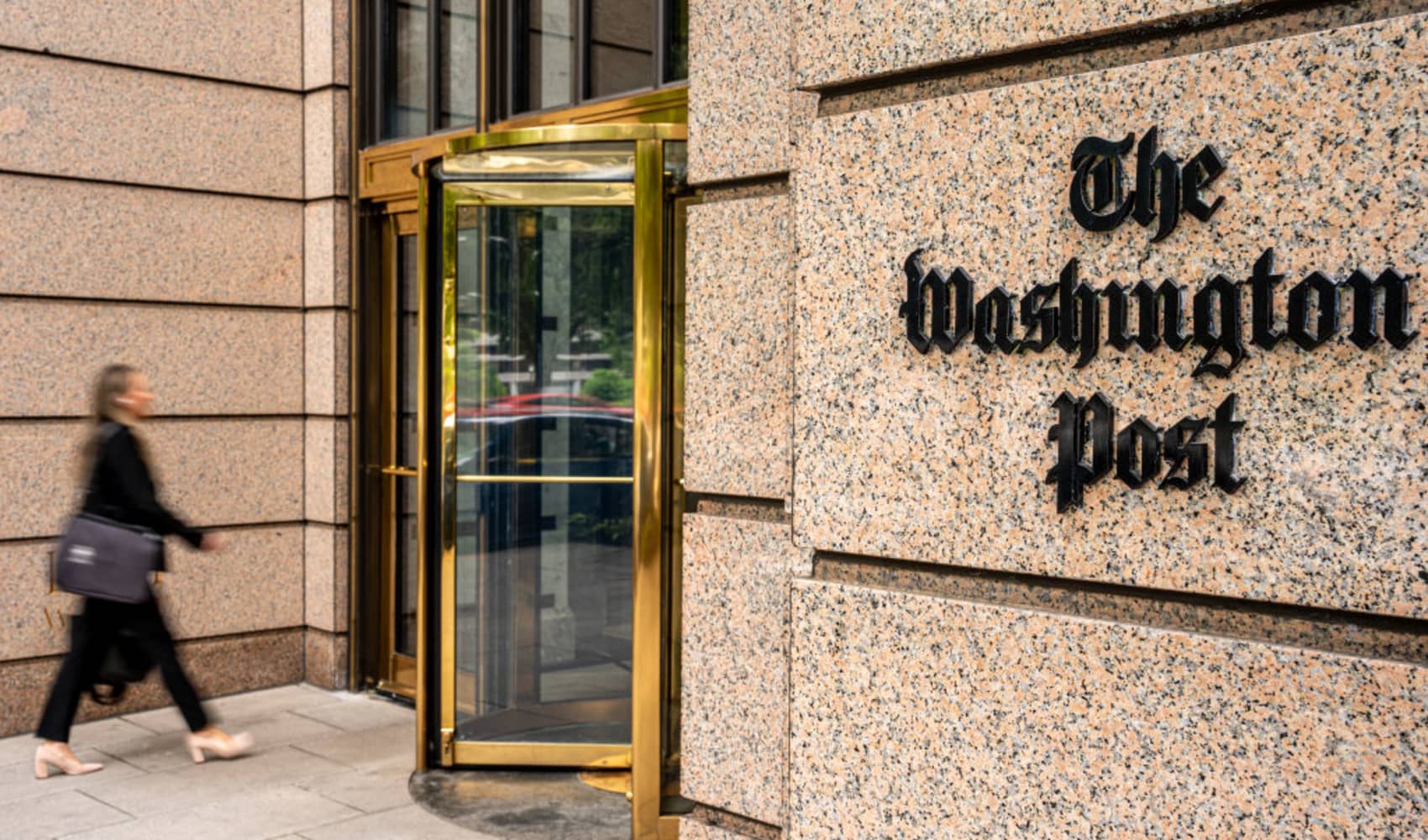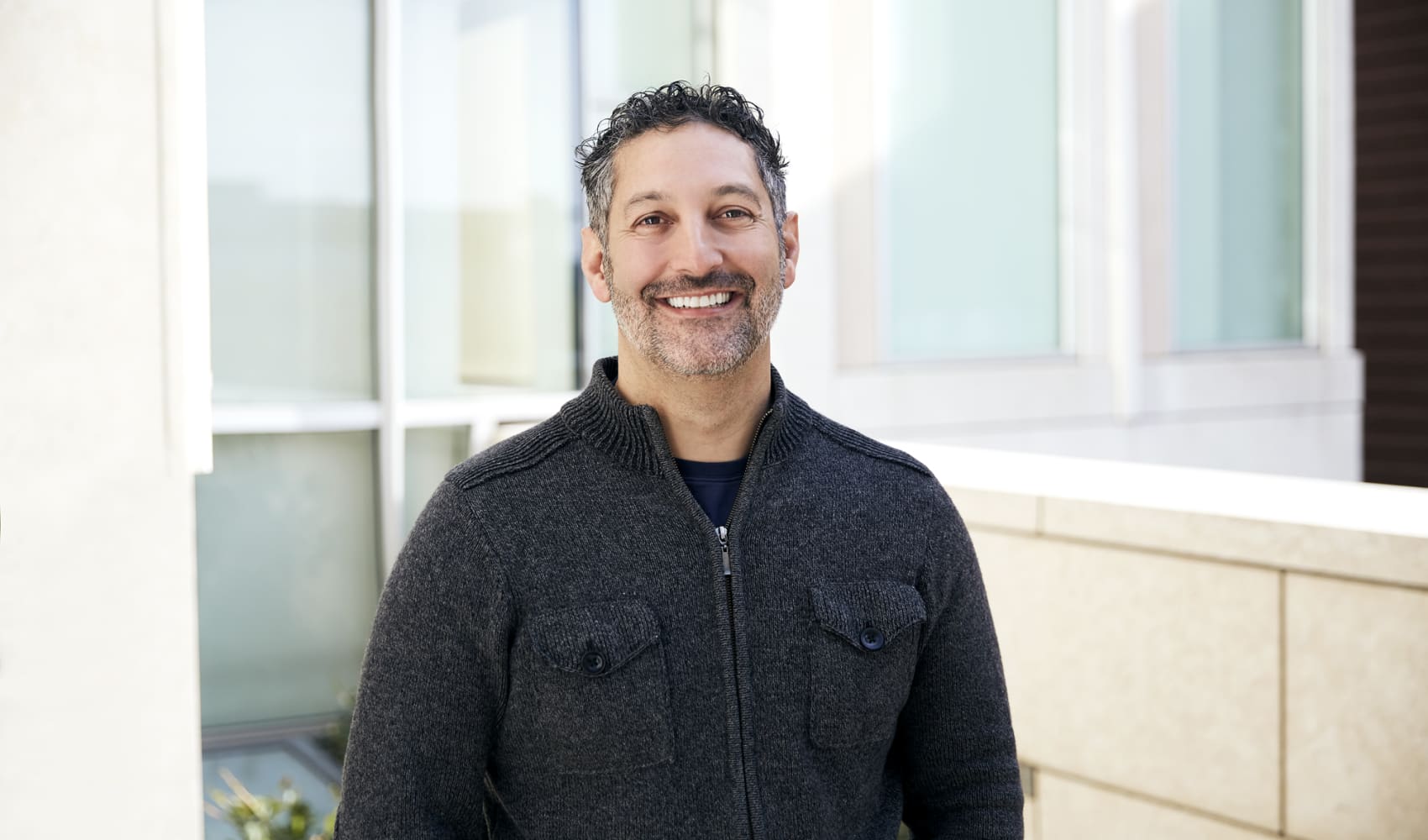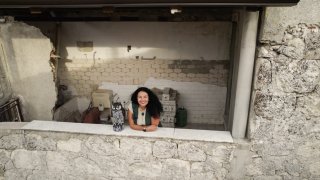
Picture this: A house with extensive mold, water damage, termites and a collapsed roof in a tiny town where you don't speak the language. Not exactly a prime real estate opportunity, right?
For Rubia Daniels, though, the dilapidated building in Sicily also served as an exciting chance to build the home of her dreams — and it cost her almost nothing to get started.
Daniels, 50, of Berkeley, Calif., is one of hundreds of people who've taken advantage of an offer that made news around the world: a home in Italy for 1 euro.
In the late 2010s, towns around Italy started going viral for selling off crumbling properties for 1 euro, or roughly $1.05. The goal? To attract foreign investors to buy up the houses, rehab them and get dwindling population numbers back up.
Get top local stories in DFW delivered to you every morning. >Sign up for NBC DFW's News Headlines newsletter.
Of course, there was a catch. In some towns, the 1-euro purchase was symbolic and just the start of more expenses down the line. In others, bids start at 1 euro but can go much higher.
There was also a big stipulation: Once buyers got their properties, they had to complete their renovations within a certain timeframe, usually three years. Costs could easily climb into the tens of thousands of euros.
Each town handles its own 1-euro program, so we don't know exactly how many homes have been sold across Italy since the concept took off. But experts estimate the campaigns have brought in thousands of visitors who've bought cheap houses across the country.
Money Report
How much does it really cost to buy and renovate a 1-euro home in Italy? And is taking on a major housing project across the world worth the money and the stress? CNBC Make It went to Sicily to talk to people who've gone through the process to find out.
Transforming an historic town, 1 euro at a time
The 1-euro campaign was first proposed in 2008 by TV personality Vittorio Sgarbi, then the mayor of Salemi in southern Sicily, where homes were destroyed in a 1968 earthquake.
The idea has since spread to dozens of municipalities across the country.
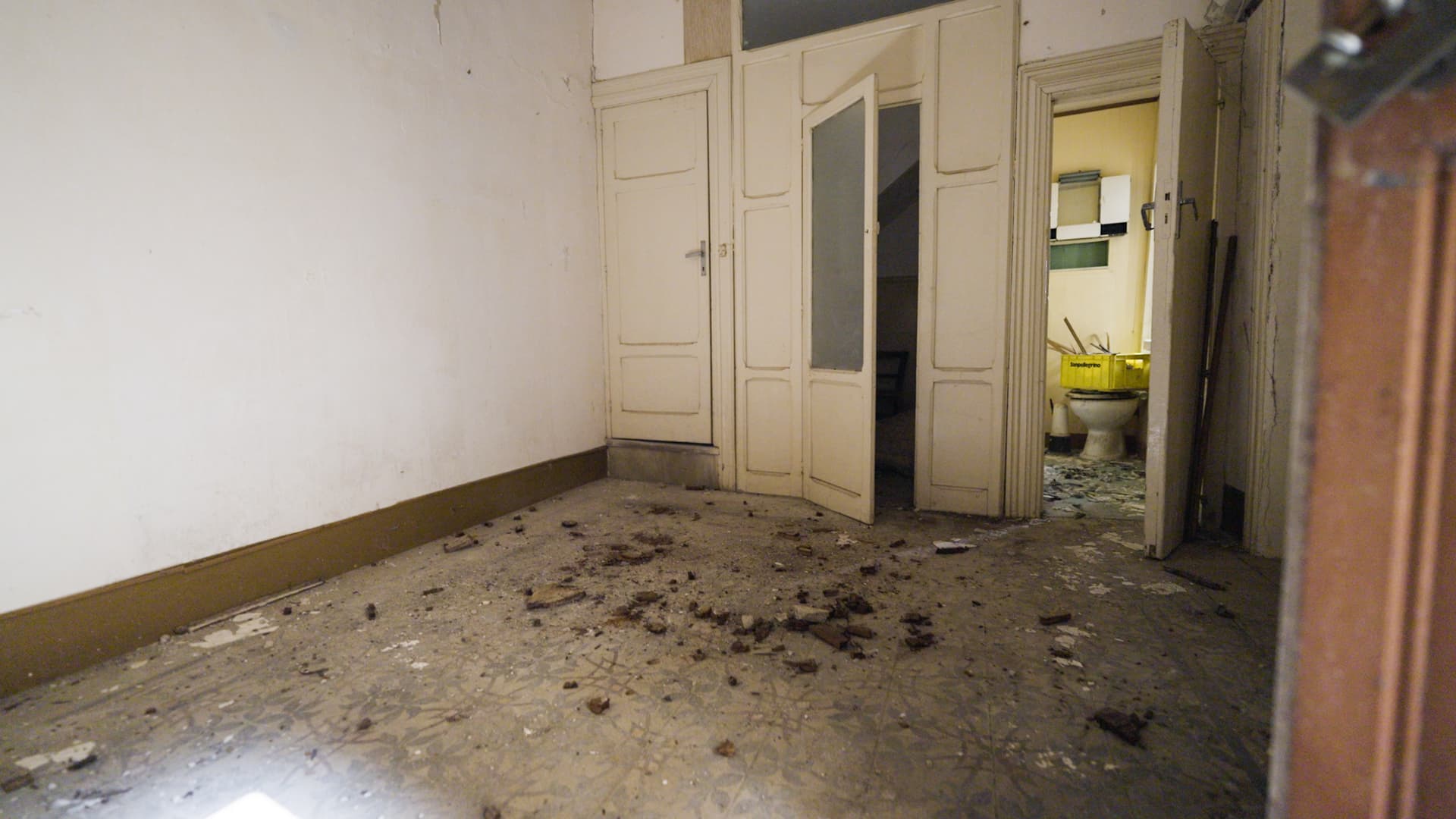
One of the most well-known towns with a 1-euro scheme is Mussomeli, a roughly 2-hour drive south of Sicily's capital city of Palermo. In Mussomeli, more than 100 homes have been sold for 1 euro, as well as roughly 200 so-called premium houses, which start around 5,000 euros and require fewer repairs.
Toti Nigrelli, Mussomeli's deputy mayor who oversees the program, credits the town's success to a user-friendly website that lays out exactly how interested homebuyers can schedule a tour and get started. Tens of thousands of requests came in "immediately" after the site launched in 2017, he says. The town made its first 1-euro sale to a Belgian visitor within two weeks.
Daniels is one of a handful of American homeowners there.
She first learned about the program from her husband, who'd read about it online. Daniels, an avid traveler who works in construction, was hooked. She booked her hotel and flight out to Sicily to see if the opportunity was too good to be true.
Days into her trip in spring 2019, Daniels called her husband. They were now the proud owners of not one or two but three separate 1-euro properties in Mussomeli, she told him.
Because she works in construction, Daniels says she didn't just see endless amounts of work in front of her. Instead, she visualized the final result of three dream projects: a vacation home, a restaurant and a wellness center.
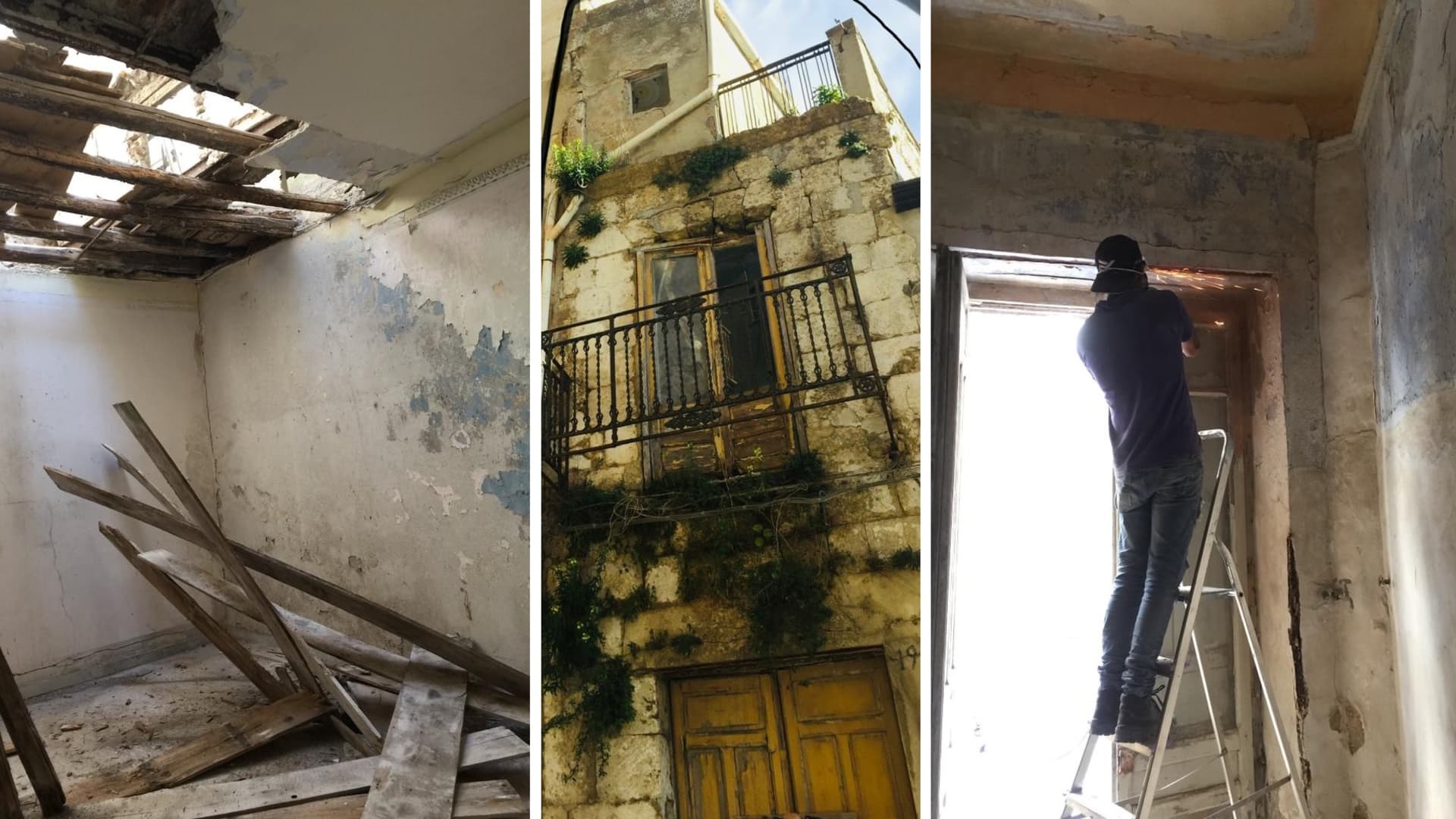
Once Daniels landed on her properties, she got a rundown of what the dream would actually cost. The houses were sold for 1 euro each but also incurred a 500-euro realtors fee and 2,800-euro deed. That added up to a total of 3,301 euros, or roughly $3,500, for each building.
She felt up to the challenge. Daniels went home to pack her tools and returned that summer with her husband, brother-in-law and five suitcases full of renovation supplies.
So far, she's focused on fixing up her vacation home and initially estimated renovations to cost $20,000. Those renovation plans include a new kitchen, marble finishes, restored stone walls and a fireplace in the bathroom. Years later, she's spent $35,000 and hopes to stay under $40,000. It's a lot of work, but the process still feels as exciting as it did on day one, she says.
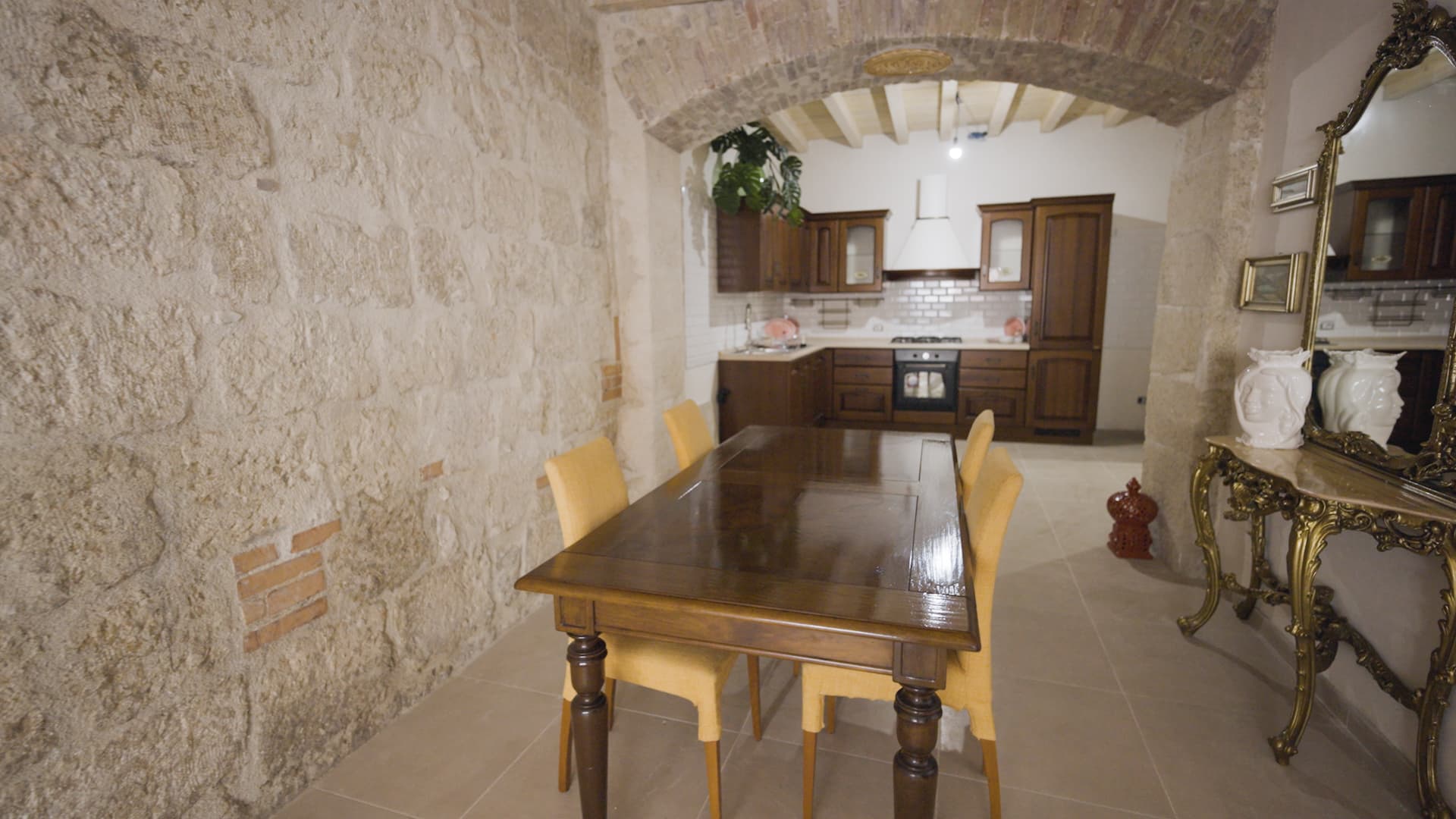
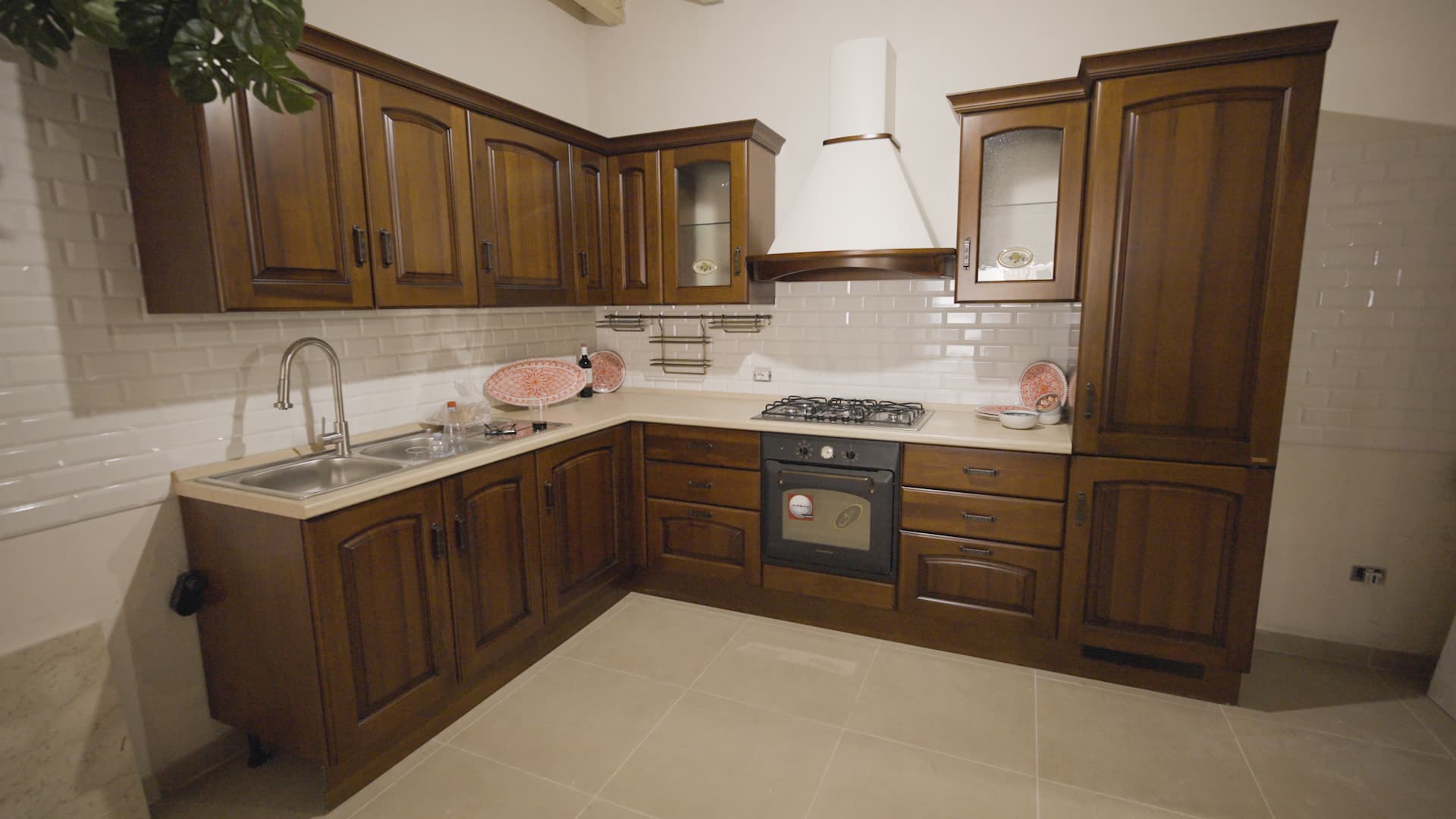
Daniels is building the house of her dreams, "which I wouldn't be able to do back in California because the cost would be much higher," she says. Daniels plans to visit her Mussomeli home for vacations and split her time between California and Sicily in retirement.
Daniels is such a fan of the 1-euro initiative that she's encouraged friends and family to take the leap. On one recent visit to Mussomeli, Daniels brought along two fellow Californians, Alfredo Ramirez and his mother, Elena, to tour the houses.
Alfredo, 35, was struck by the price difference: The amount of space he could get for 16,000 euros in Mussomeli might run him over $330,000 in Petaluma, Calif., where he lives and works in customer service.
'4 million moments of frustration,' but no regrets
About an hour's drive from Mussomeli is the town of Sambuca di Sicilia. In 2019, it went viral for auctioning off old homes with bids starting at 1 euro.
There, Meredith Tabbone, 44, of Chicago, bought and renovated a 1-euro house of her own.
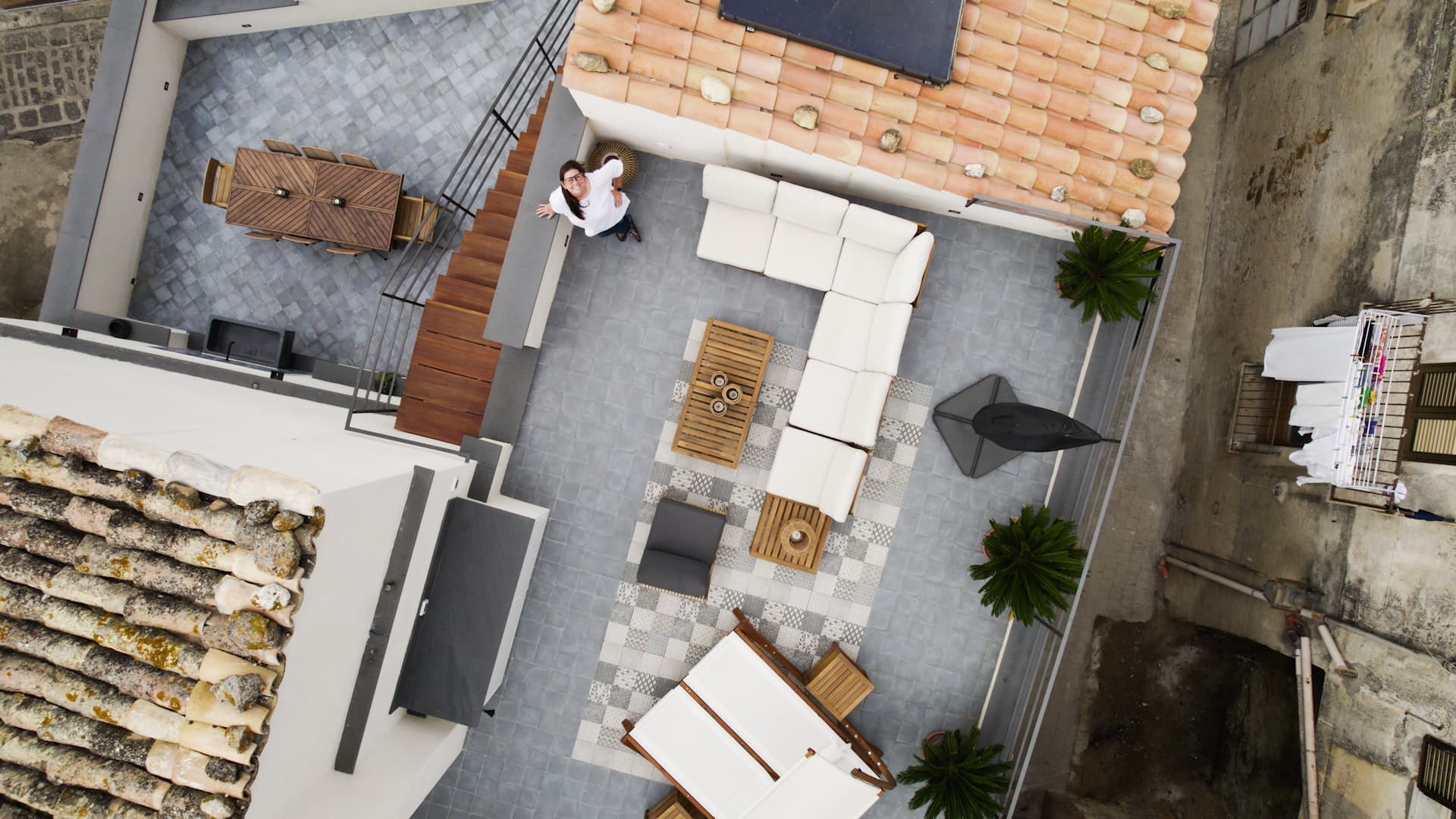
At the time, Tabbone was looking into getting dual citizenship in Italy, where part of her family was from before they immigrated to the U.S.
A friend told her about the Sicilian home project. "I thought it was too good to be true," Tabbone says, "but I checked when I saw the name Sambuca and took a look, and it was the same village that my great-grandfather came from in 1902 to the United States."
On one of the final days of the auction, Tabbone placed her bid of 5,555 euros for a property, sight unseen.
"A lot of people warned me that it could be a scam [and that] I could end up losing a lot of money," she recalls. In May, she got the email that her bid won. She paid what she owed, plus some taxes and fees, bringing the home sale up to 5,900 euros, or roughly $6,200.
Tabbone flew to see her new home for the first time in June 2019. She then bought the building next door through a private sale with the owner for 22,000 euros, or just over $23,000.
The additional purchase meant more space to build her dream vacation home. It also meant much higher renovation costs. What started as a 40,000-euro budget to renovate 620 square feet grew to 140,000 euros to cover 2,700 square feet.
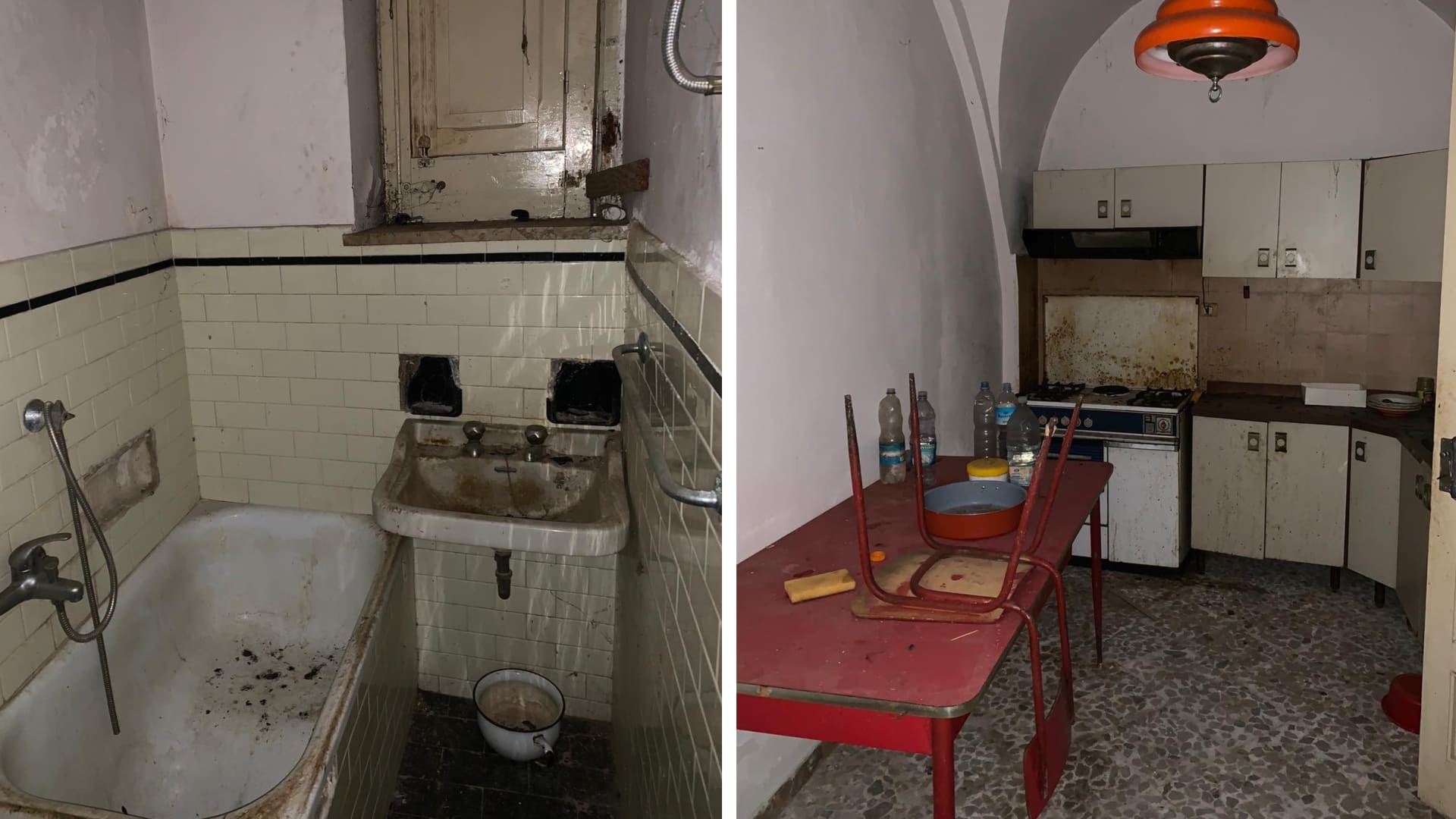
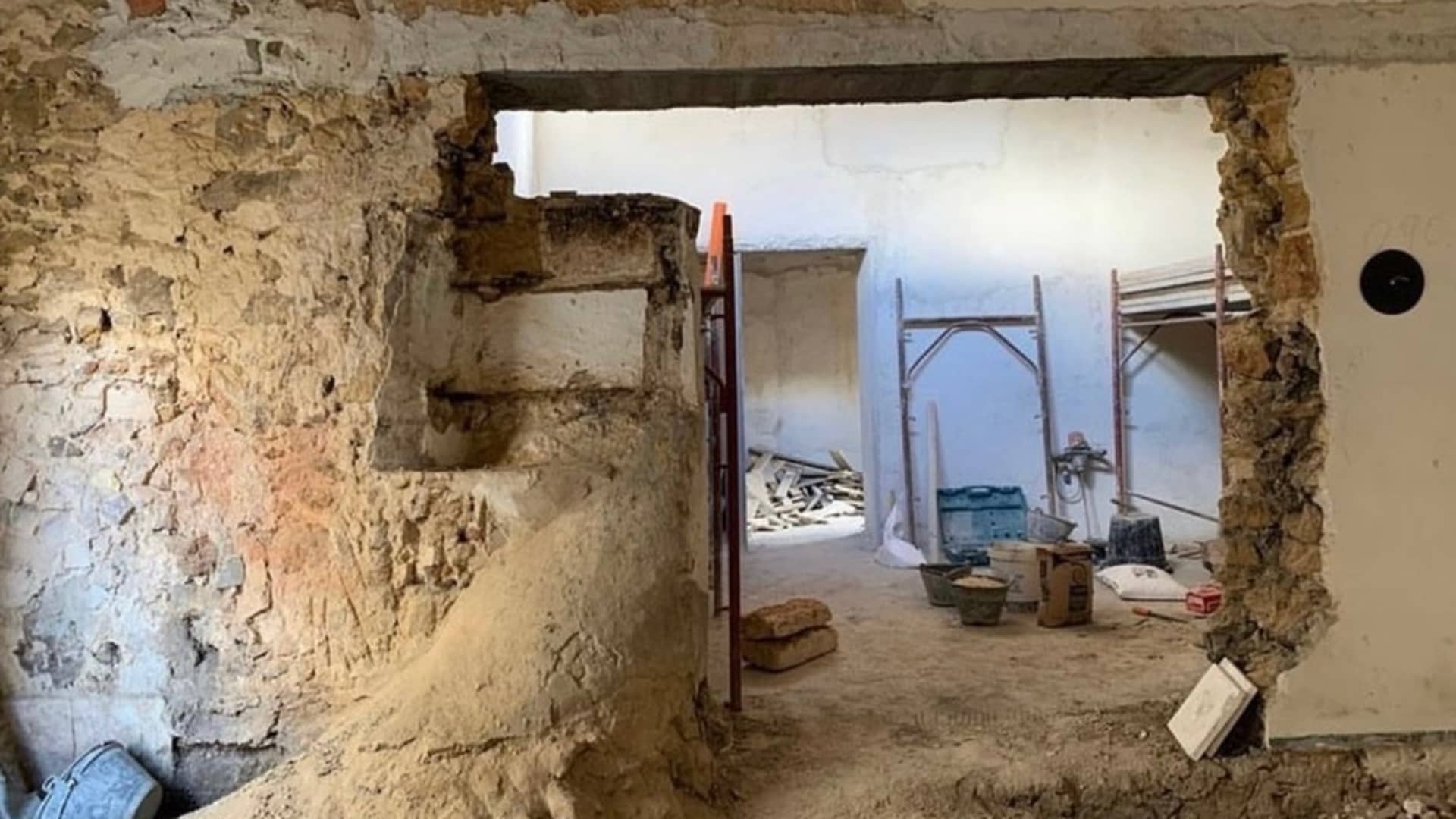
Over the next four years, Tabbone visited Sambuca for weeks at a time to oversee a local crew for the extensive overhaul: They knocked down walls to join the properties; leveled the flooring across 18 small rooms; reinforced the structure against earthquakes; added two large terraces; and opened up the kitchen, dining and living rooms.
All in, she spent about 425,000 euros on renovations, or roughly $446,000.
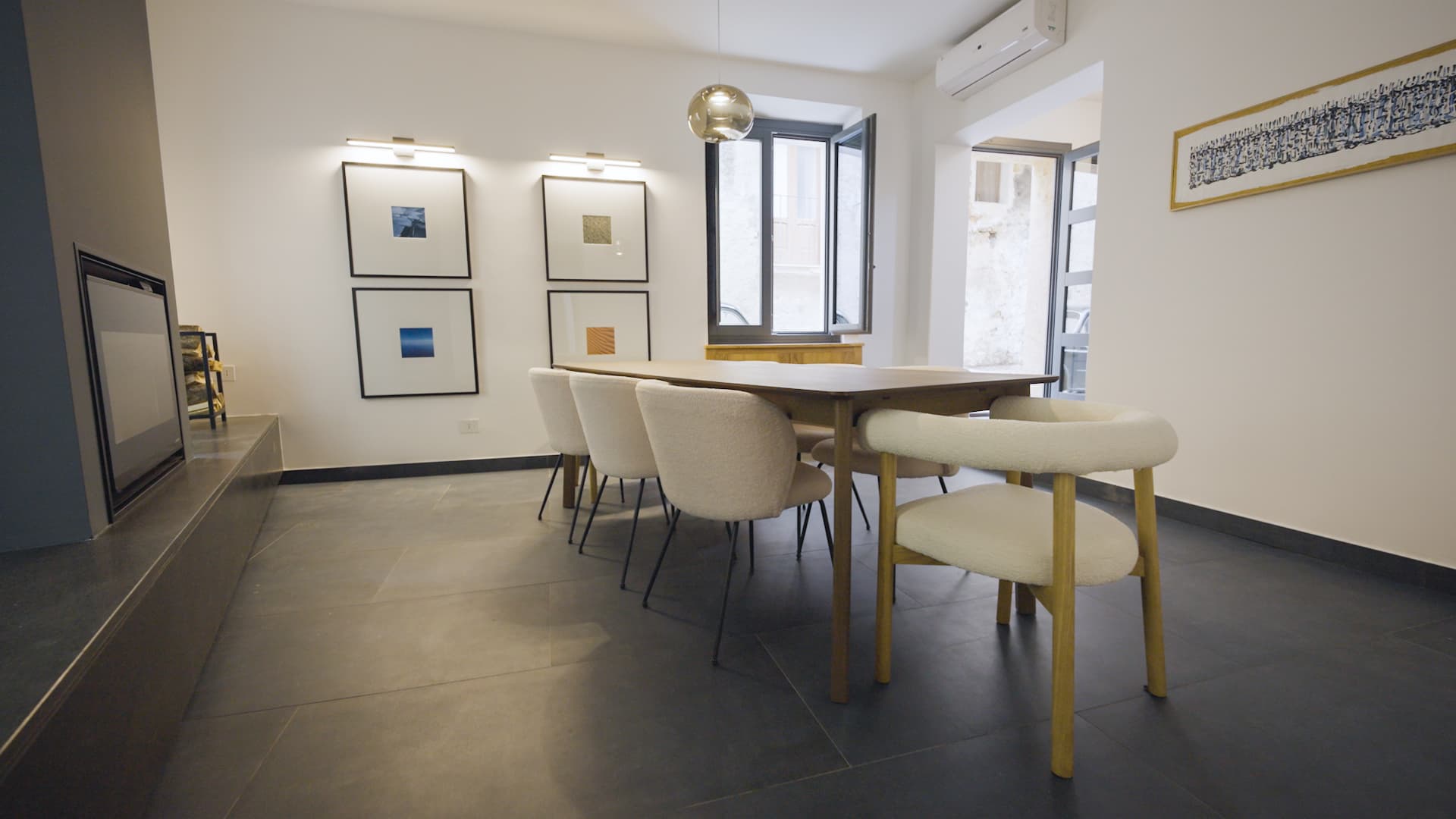
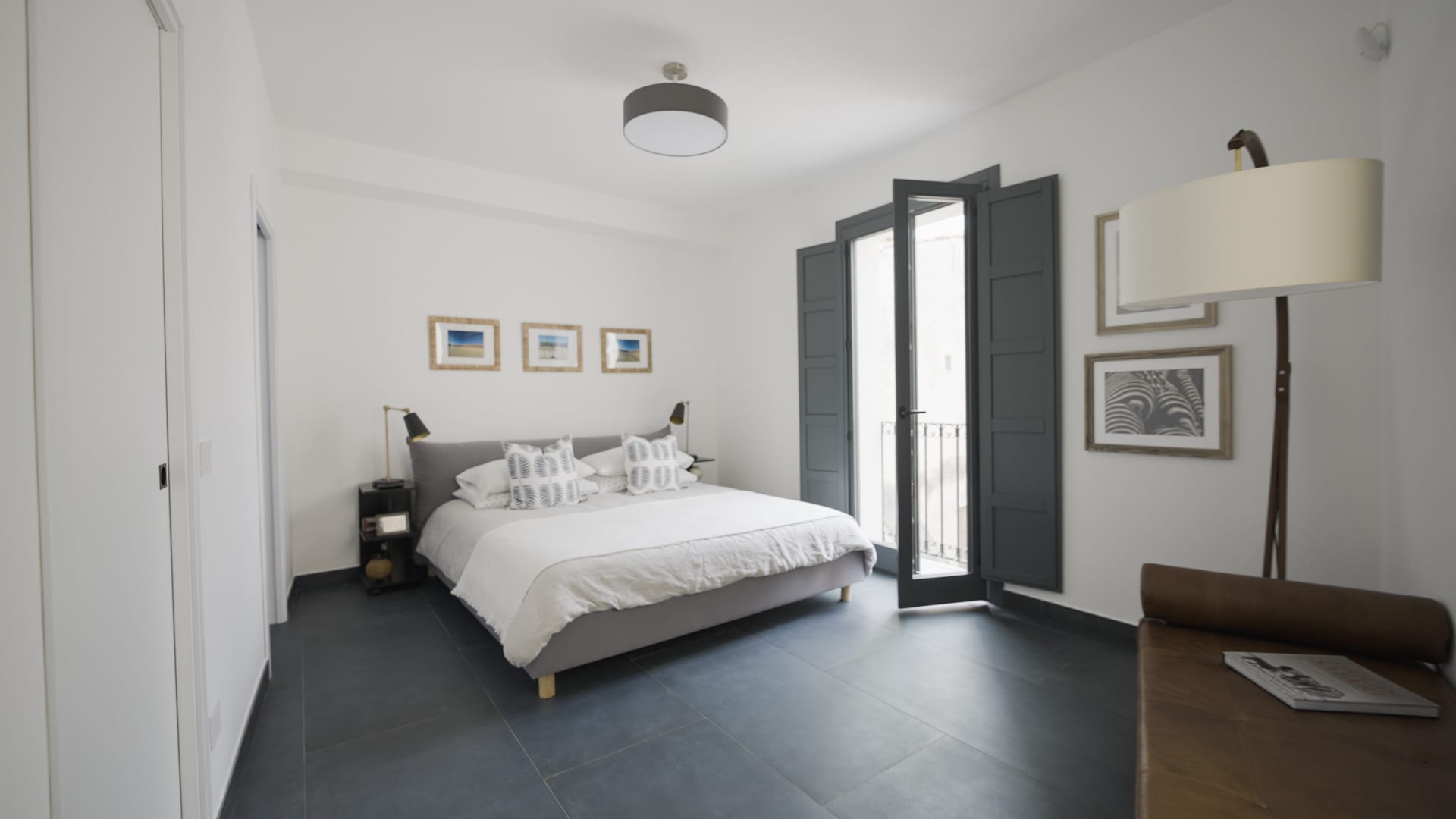
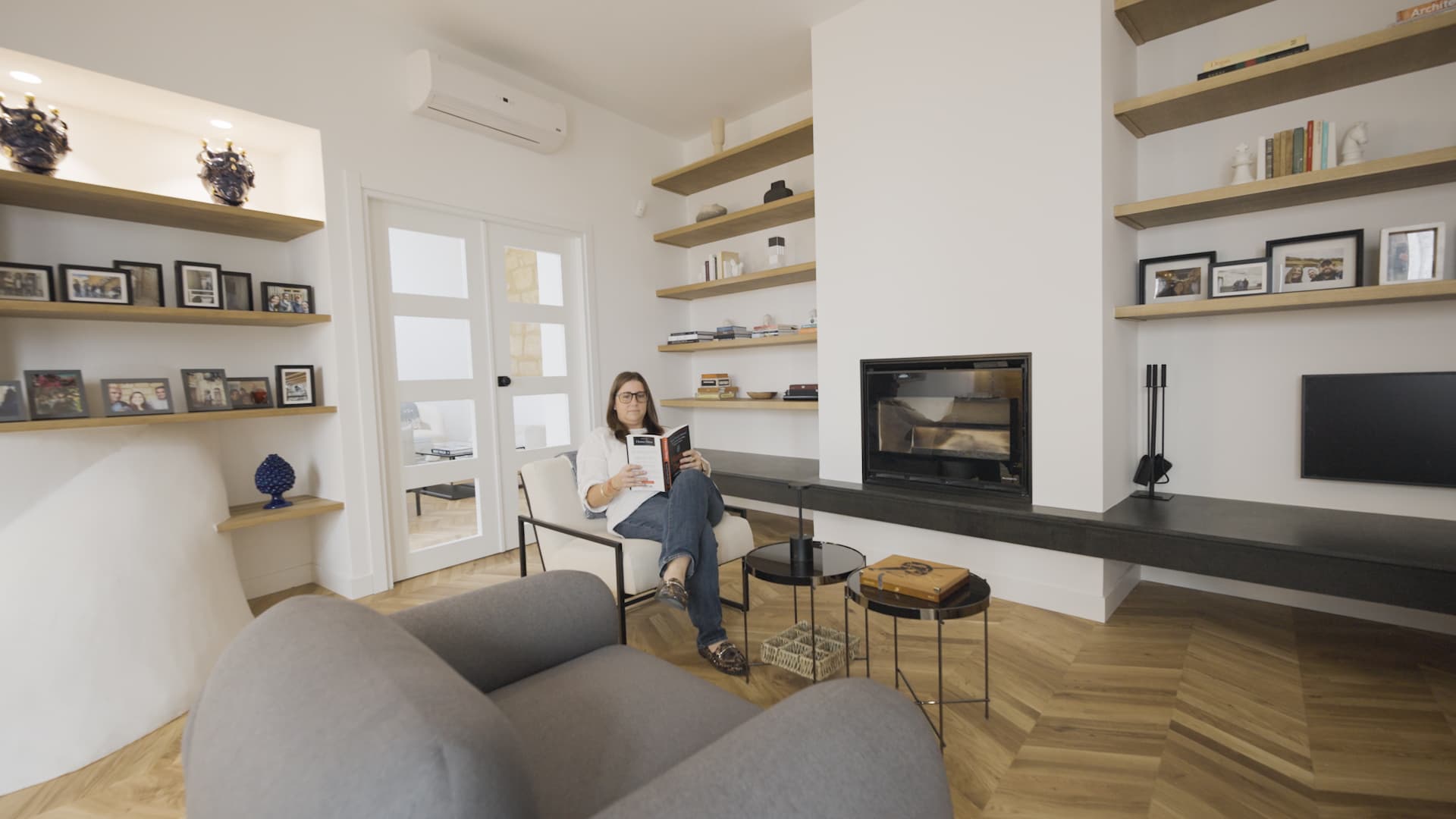
"From the moment that I sent in the bid and checked my email every day and found out that I won, all the way through this process, there have been 4 million moments of frustration, exhaustion, contemplation of how to move forward," Tabbone says.
That being said, "I never felt like this wasn't the right place for me to be, and that this wasn't the right project for me to work on or community to live in," she says. "I've learned so much about my family, which has been really special for me because my father passed away when I was a senior in high school."
When unexpected challenges derail the plan
Not all renovation plans work out. That was the case for Danny McCubbin, 59, who's originally from Australia and was living in London when he heard about Mussomeli's 1-euro program.
In spring 2019, he made his first visit and toured 28 houses before buying his property.
His vision was different from most: McCubbin wasn't looking for a home to live in, but rather a space to launch a food-rescue charity, building upon his 17 years working on food-based campaigns for Jamie Oliver in London. He was inspired by his observation that lots of elderly people and families were not getting fresh food in Mussomeli.
The pandemic delayed his plans to rehab a 1-euro house for the project. The home experienced extensive water damage while he was stuck in London for 10 months. By the time he returned, his 15,000-euro quote for renovations doubled.
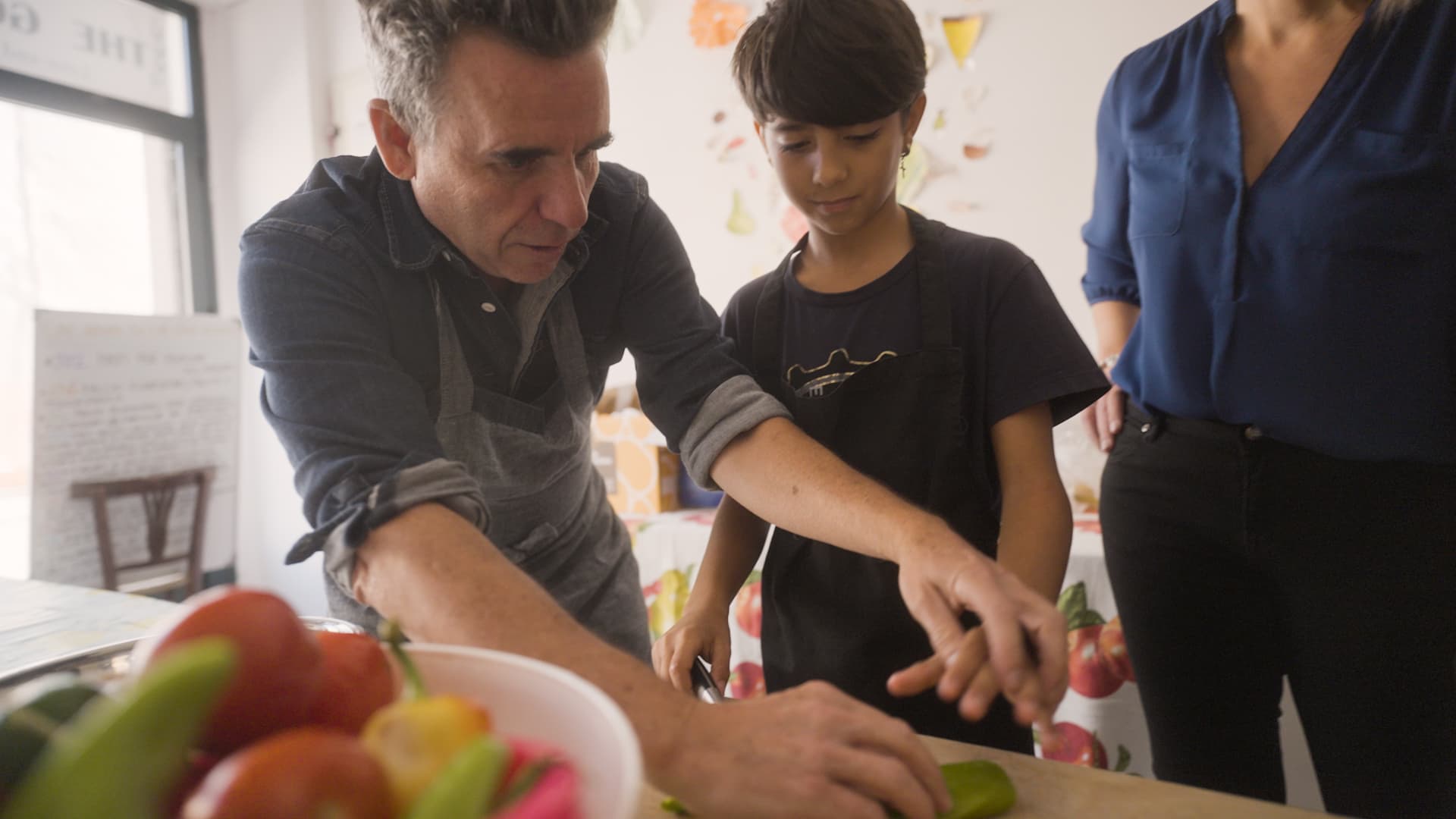
He decided to sell his house back to the real estate agency for 1 euro and found a different space to rent in the town square. His charity, The Good Kitchen, now operates from the space next door, where rent and utilities run 400 euros a month.
McCubbin says he doesn't regret a thing: He's grateful the scheme helped him establish his Italian residency and brought him to Mussomeli.
Locals are glad he stayed, too: Each week, volunteers at The Good Kitchen work to rescue surplus food from nearby markets and deliver grocery packages to local families in need. They also host a weekly lunch for community members.
"My dream is that one day we will be able to provide jobs, especially for young people in the town," he says.
A flood of foreign capital, jobs, tourism and newcomers
Mussomeli's 1-euro campaign has already had a positive impact by bringing more foreign investment, tourism and jobs, says Nigrelli, the town's deputy mayor.
Mussomeli had roughly 16,000 residents in the 1950s, he explains, but populations declined through the '80s as young people left for university and better career opportunities in northern Italy. Today, roughly 9,900 people remain in town.
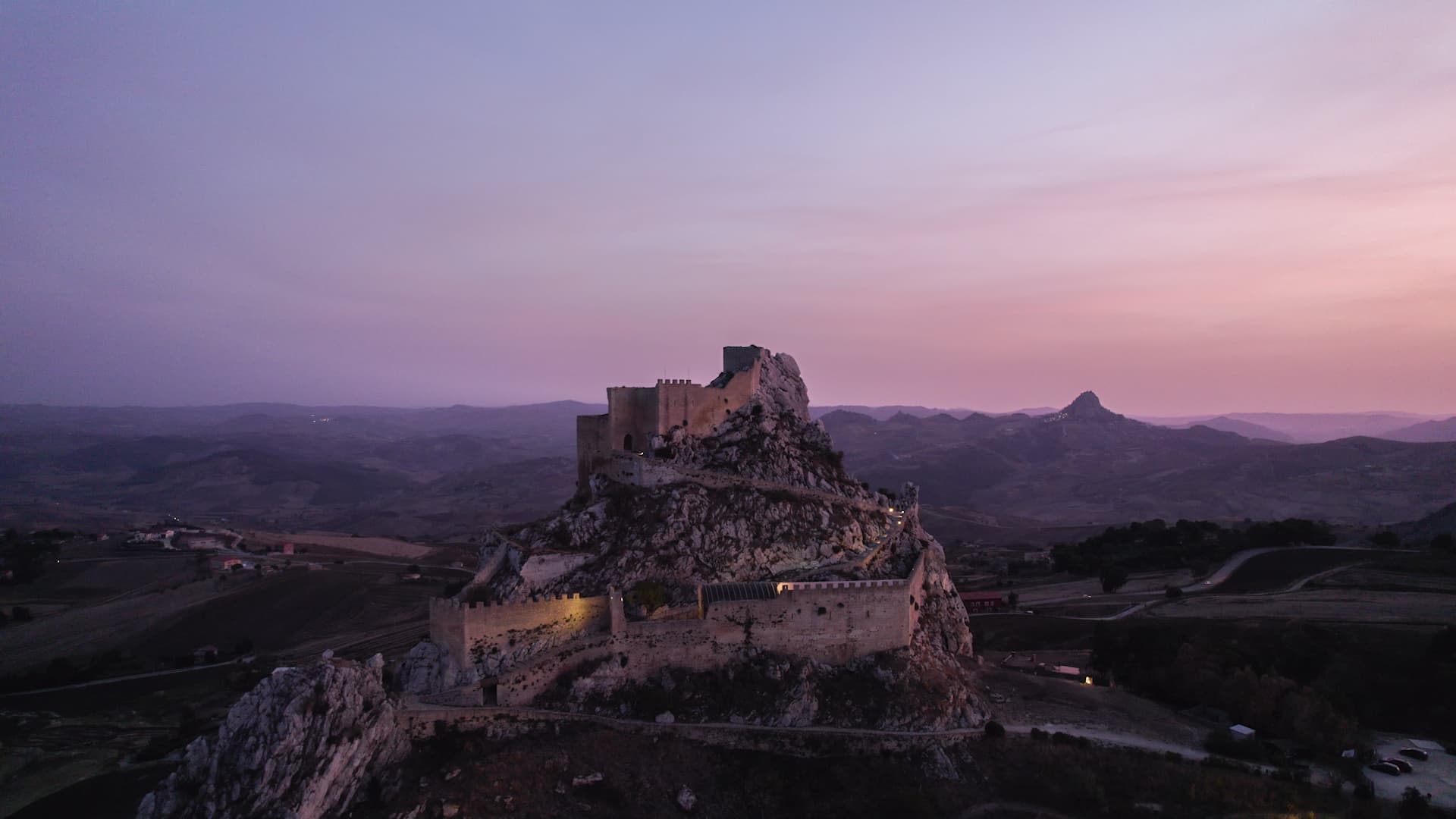
Like many small towns in Sicily, Mussomeli doesn't have a major university. As a result, many jobs that stay in town are concentrated in construction, agriculture and the trades. The compounding effect has left the region with a large youth unemployment problem: Roughly 32% of young Sicilians from age 15 to 29 are unemployed — one of the highest rates in Italy.
Even when young people return to Mussomeli, they can find the small town limiting. Federica Prezioso, 37, moved away to study in Palermo, Milan and London. She returned to work as a teacher and raise children, but says it's hard to see her friends move away over time.
She's in favor of schemes like the 1-euro home program. Large-scale renovations mean more jobs for carpenters, plumbers, electricians and other construction workers. The project even brought a wave of Argentinian doctors who moved there and resolved a shortage of health-care workers.
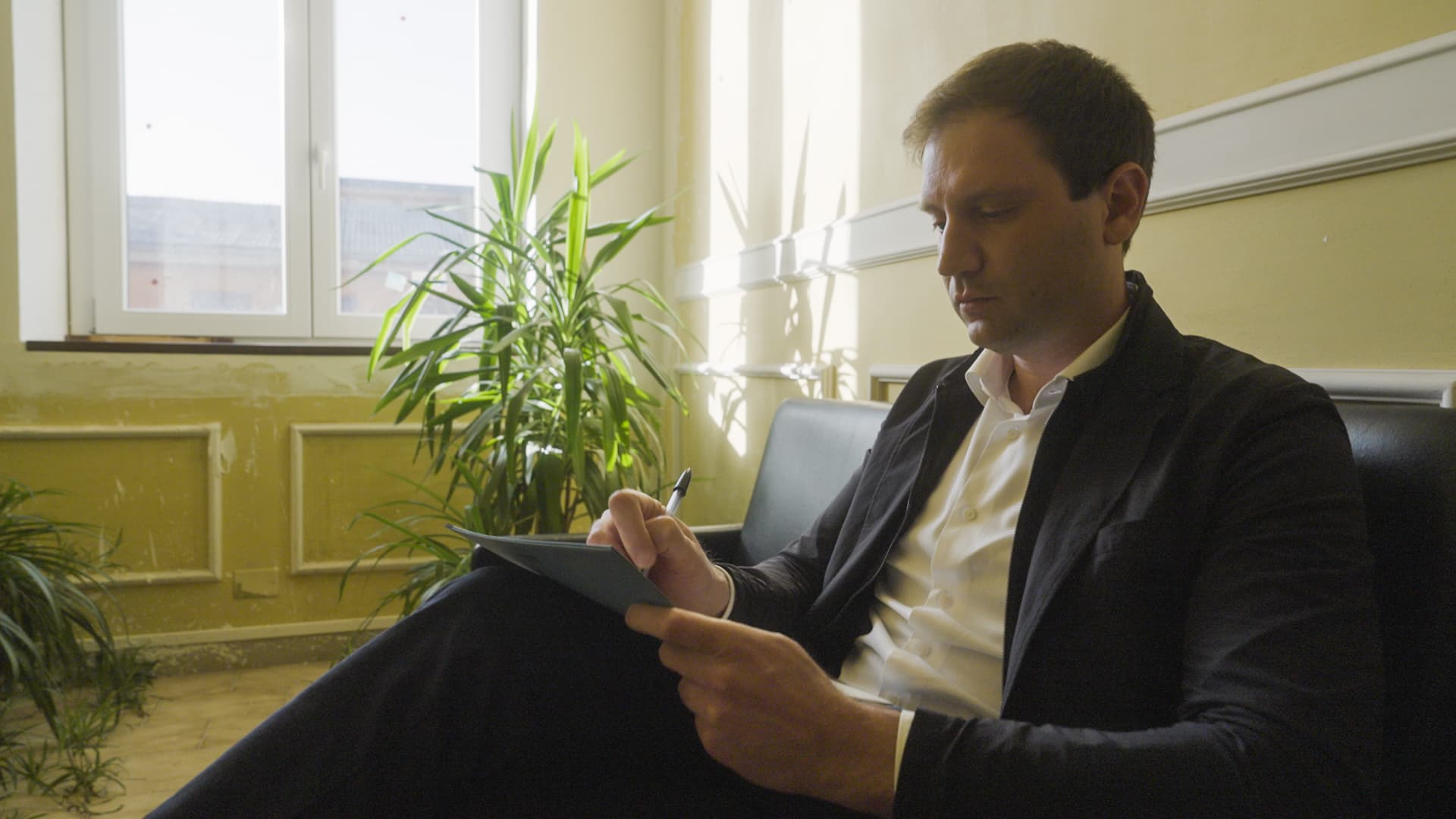
Even if prospective homebuyers or curious tourists don't settle on a property to purchase, the increase in foot traffic has led to a boost for local restaurants, hotels and retail stores. Mussomeli's tourism sector increased by 3,000% within the first year of launching the 1-euro home program, according to Nigrelli.
In the last seven years, Mussomeli has sold off nearly all of its 1-euro homes, another marker of success. Roughly a dozen houses are left, says Natalie Milazzo, a local real estate agent.
Meanwhile, there are over 100 premium houses currently on the market, Milazzo says. Many of them are being sold by families who've moved away or inherited multiple properties and see an influx of interested foreigners as an opportunity to make a profit.
With more foreign home investors and visitors come higher real estate costs. As the demand for previously worthless homes has increased, Nigrelli says, the price of homes for sale and for rent have risen by up to 100%.
This could become a problem for incoming homebuyers purchasing old properties and renting places to stay during renovations. On the other hand, Nigrelli estimates roughly 90% of Mussomeli residents already own their homes, so rising real estate prices have a smaller immediate impact on locals.
Looking ahead: 'The respect of the old town is the most important thing'
In 2021, a group of young professionals in Cammarata, Sicily, started a nonprofit called StreetTo, which works with the city to advertise 1-euro and cheap houses to foreigners. So far, the program has attracted a handful of young people and couples who move to the town to work remotely, says volunteer Martina Giracello, 31.
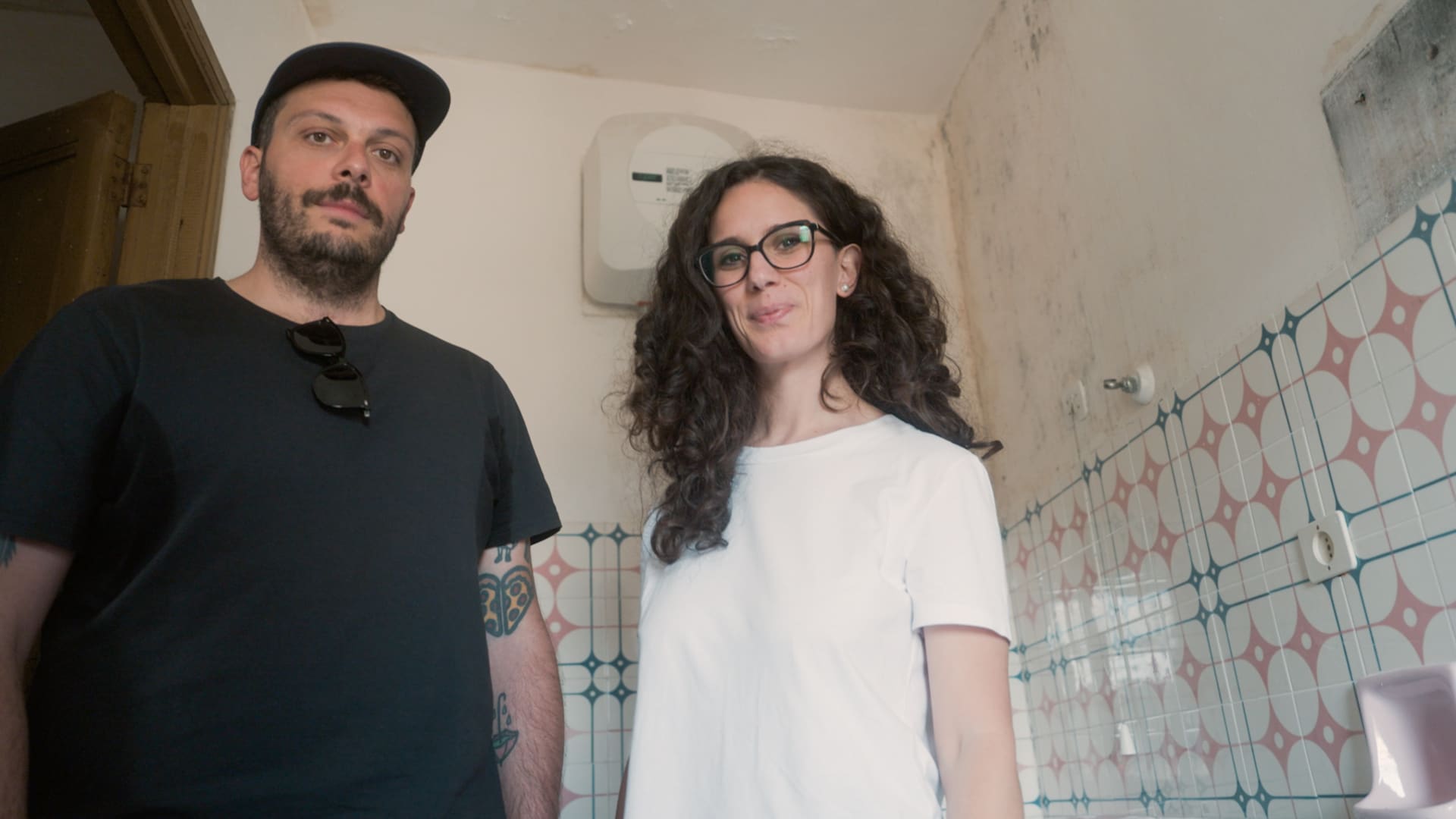
Houses that aren't being sold for 1 euro range between 5,000 to 25,000 euros, or $5,250 to $26,250. StreetTo volunteers say they list houses at a sustainable pace to avoid gentrification and out-of-control housing prices.
"The respect of the old town is the most important thing," Giracello says.
Gianluca Militello, 38, says volunteering with StreetTo is one of the main ways young people like him can improve their futures in Cammarata: "We want to be surrounded by people who can bring something to our own lives."
"It's also personal," he adds.
Back in Mussomeli, Nigrelli says local officials across Sicily have asked him for guidance to bring 1-euro programs to their town. One recent partnership: Getting a campaign up and running in Caltanissetta, an hour's drive east.
Daniels and Tabbone, the American homebuyers in Mussomeli and Sambuca, say their 1-euro journeys have been worth it.
Their small Sicilian towns offer a low cost of living. A nice meal out might be 10 euros or less, while a round-trip flight within Europe or to Africa might run you just 45 euros, Tabbone says.
Another big draw: the Sicilian approach to leisure, including a daily lunch and nap break from noon to 4 p.m. when most of the town shuts down.
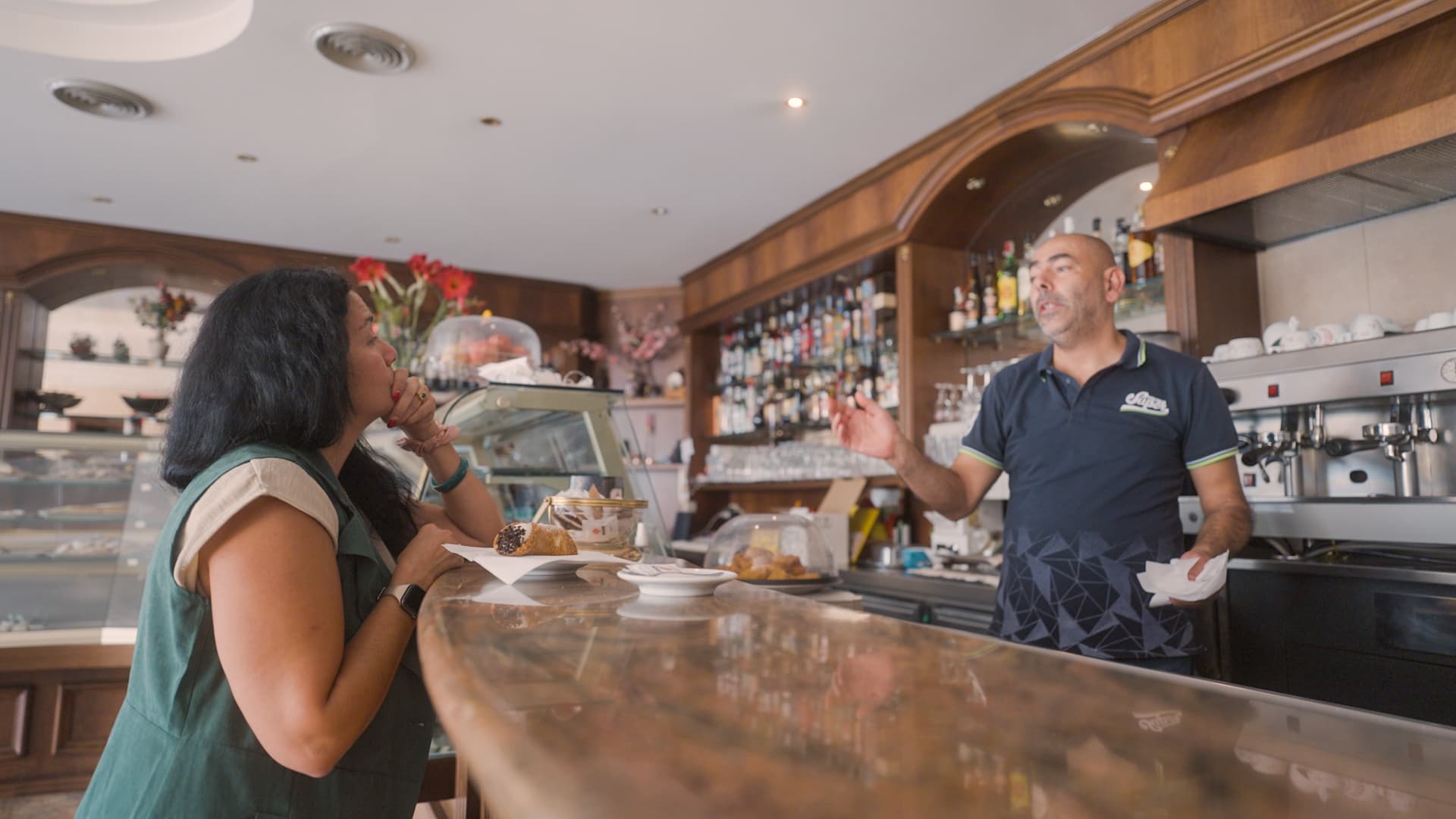
Tabbone, who runs her own business as a financial advisor, says the slower pace of life abroad makes her want to "have the focus of my life be about just personal fulfillment in general," rather than work.
A mentality that prioritizes leisure and socializing makes for a lower-stress life, Daniels says. "People here, they consume a lot of alcohol, nicotine, carbs, and they live longer than most places," she points out. "I believe it's because the level of stress is so low and [the fact that] the community is so active that that gives them longevity."
Daniels feels strongly that historic renovation programs are beneficial in part because they're sustainable. Around the world, "we have destroyed so much of the environment building things instead of using what exists," she says.
Tabbone is glad to have the chance to connect with her family history and considers the Sambuca project a "huge success" for bringing attention to the village.
She's wary of fielding questions from foreigners like herself who want to buy an old home and turn it into an investment property. "I'm very grateful that I do not know anybody doing that, because I do not want this to be a village of Airbnbs," she says.
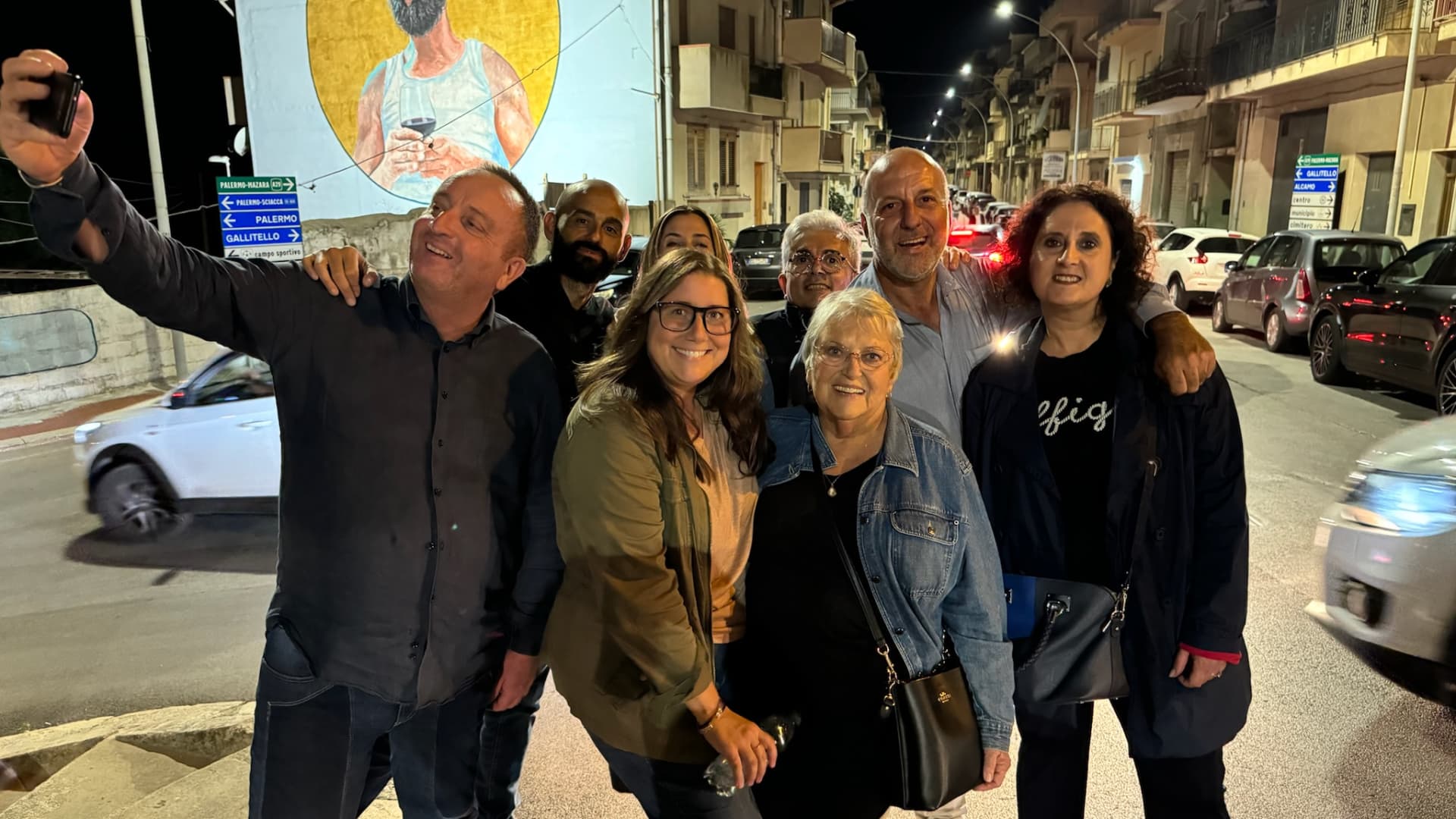
Tabbone says she will never sell her Sambuca home despite getting many offers. "I have a cousin, [and] I've already told her she can use the house if I pass away before her. After that, it's going to be donated to the village."
"A lot of people refer to this as a revival of this town," Tabbone adds. "I like to think of it more as a renaissance."
Conversions from euros to USD were done using the OANDA conversion rate of 1 euro to 1.05 USD on Oct 18, 2023. All amounts are rounded to the nearest dollar.
Want to land your dream job in 2024? Take CNBC's new online course How to Ace Your Job Interview to learn what hiring managers are really looking for, body language techniques, what to say and not to say, and the best way to talk about pay.


